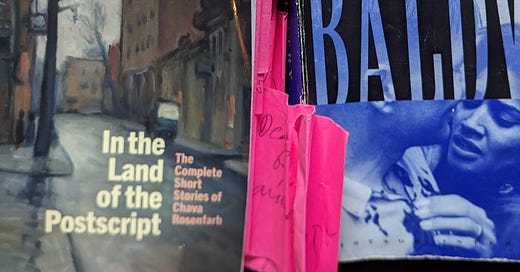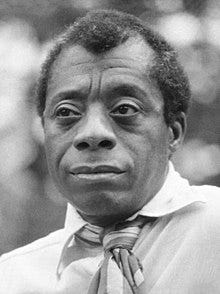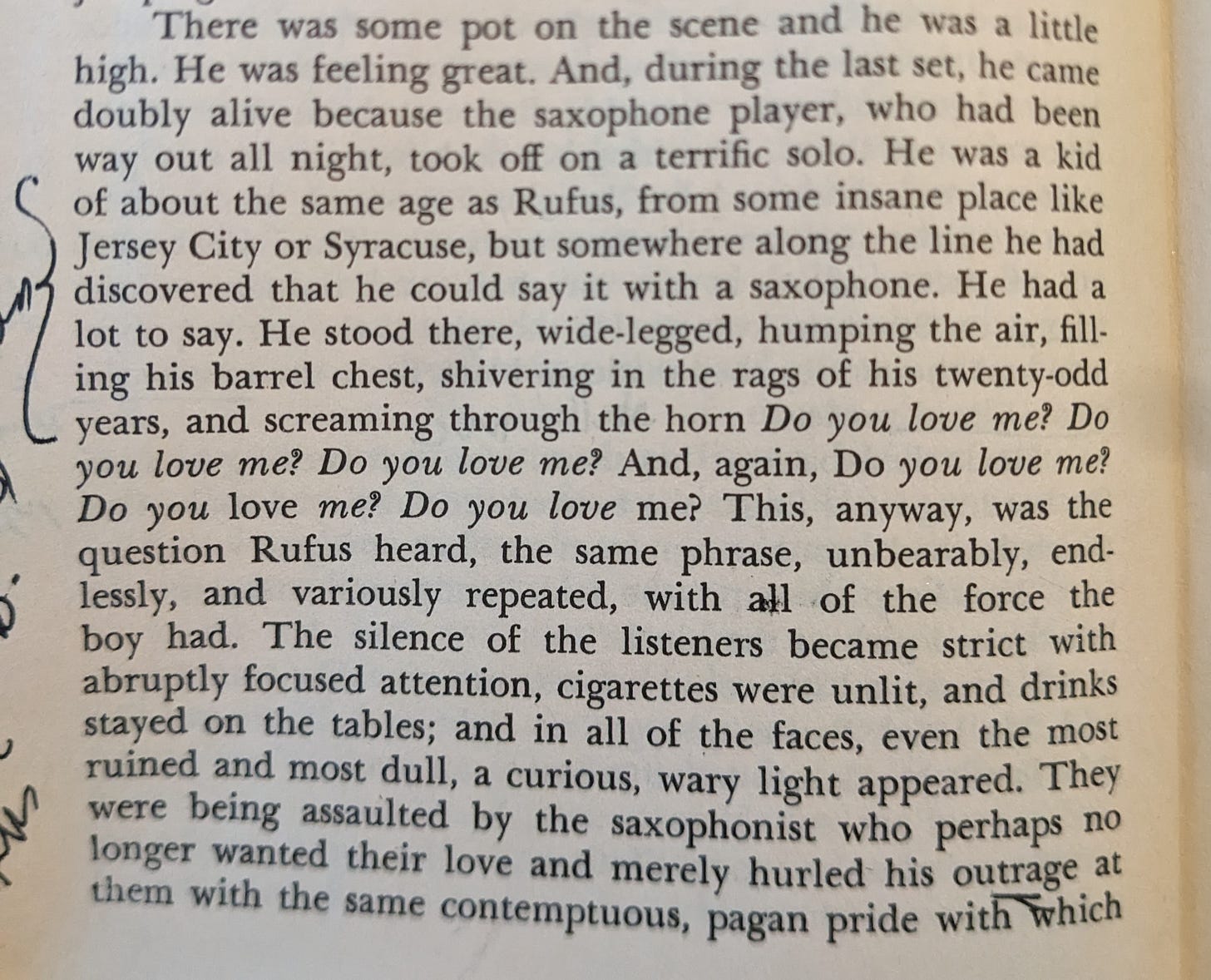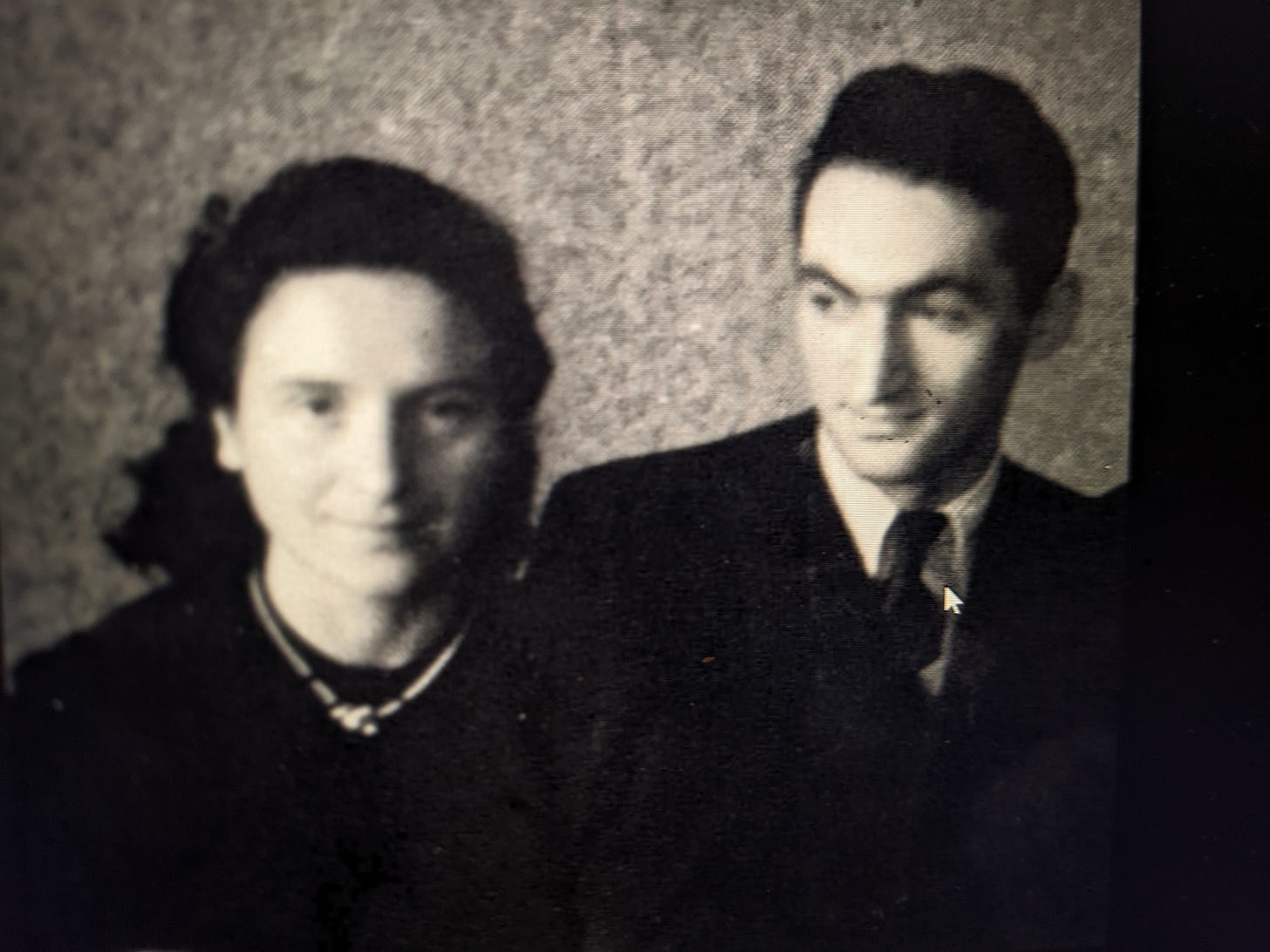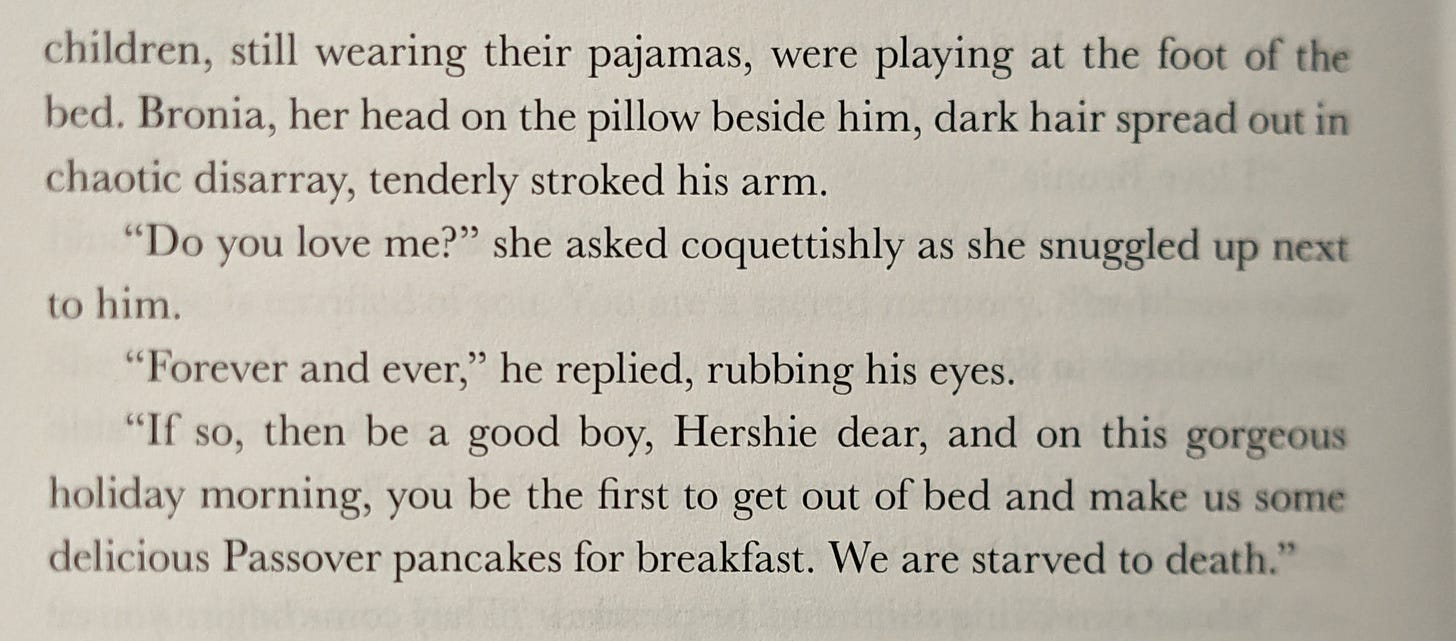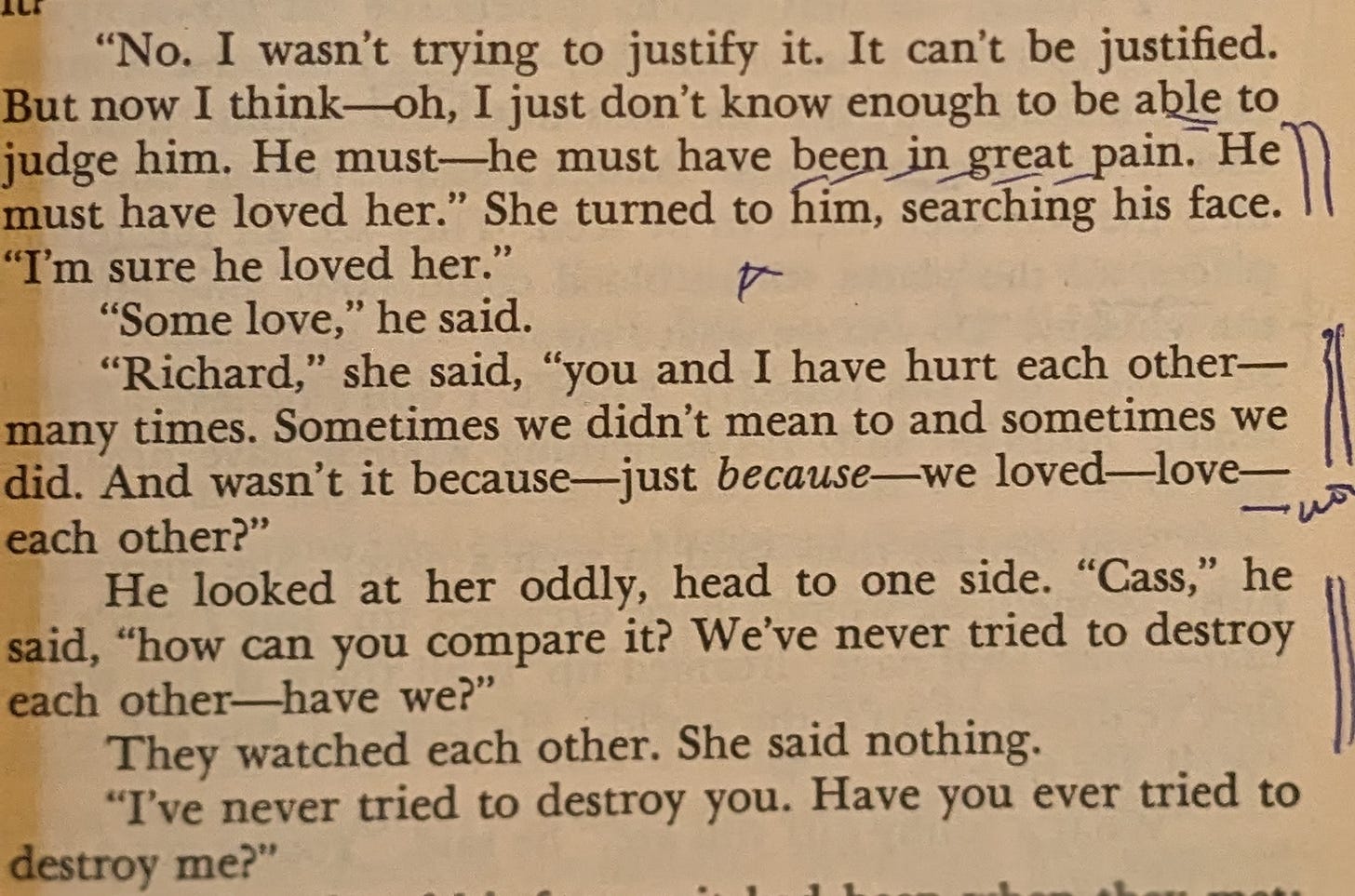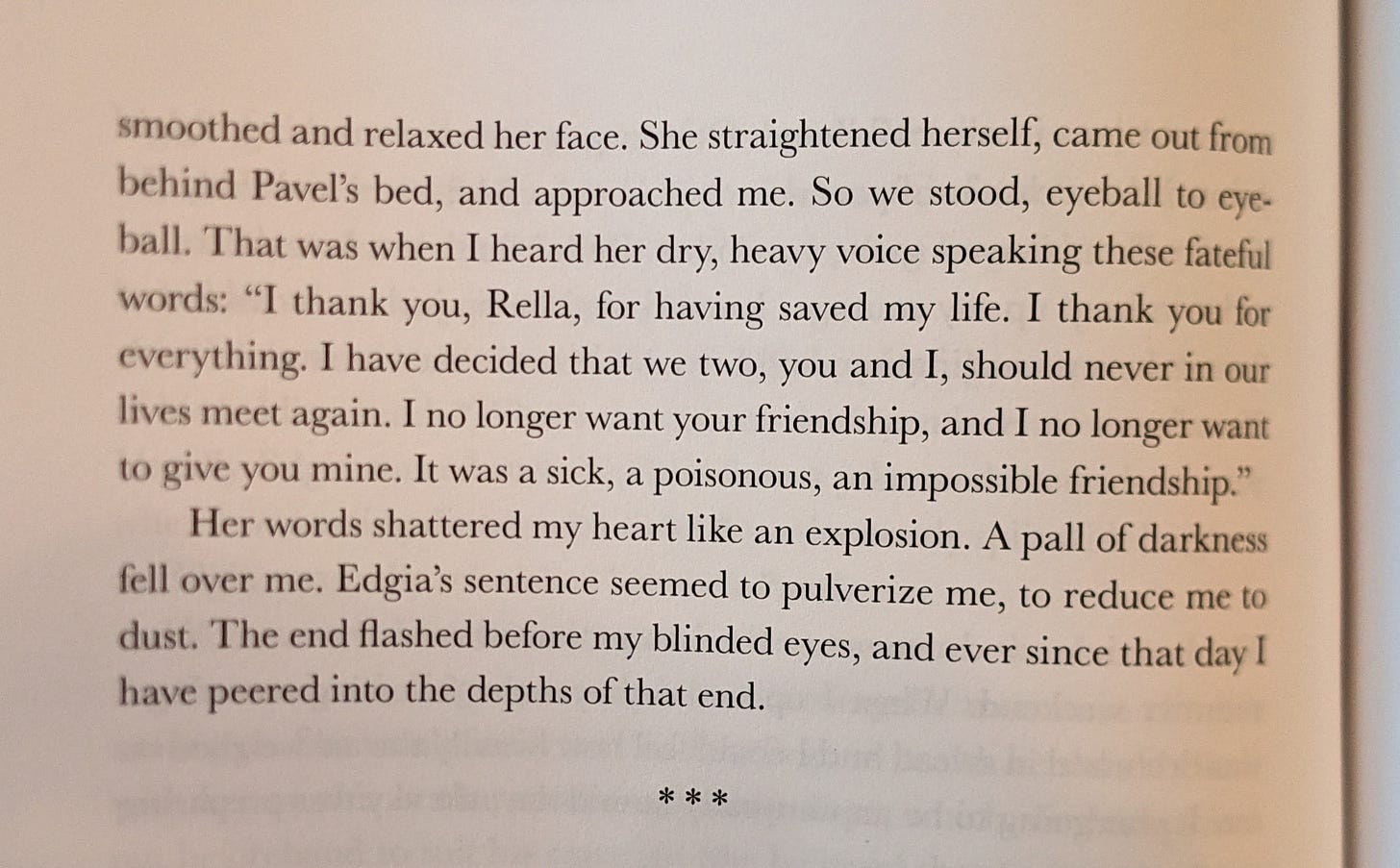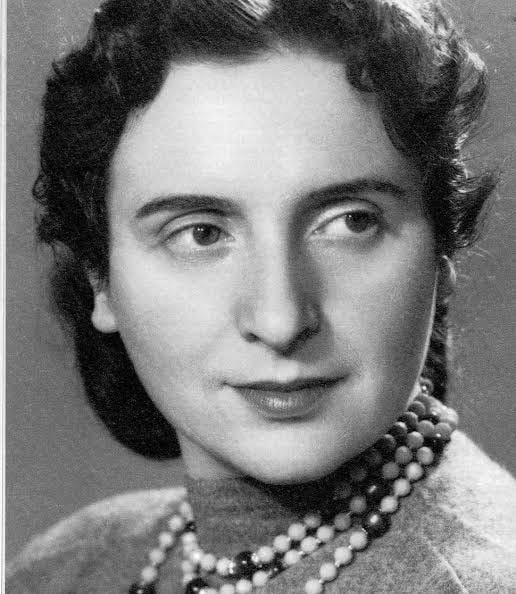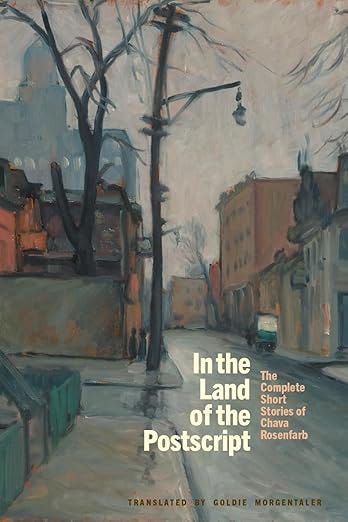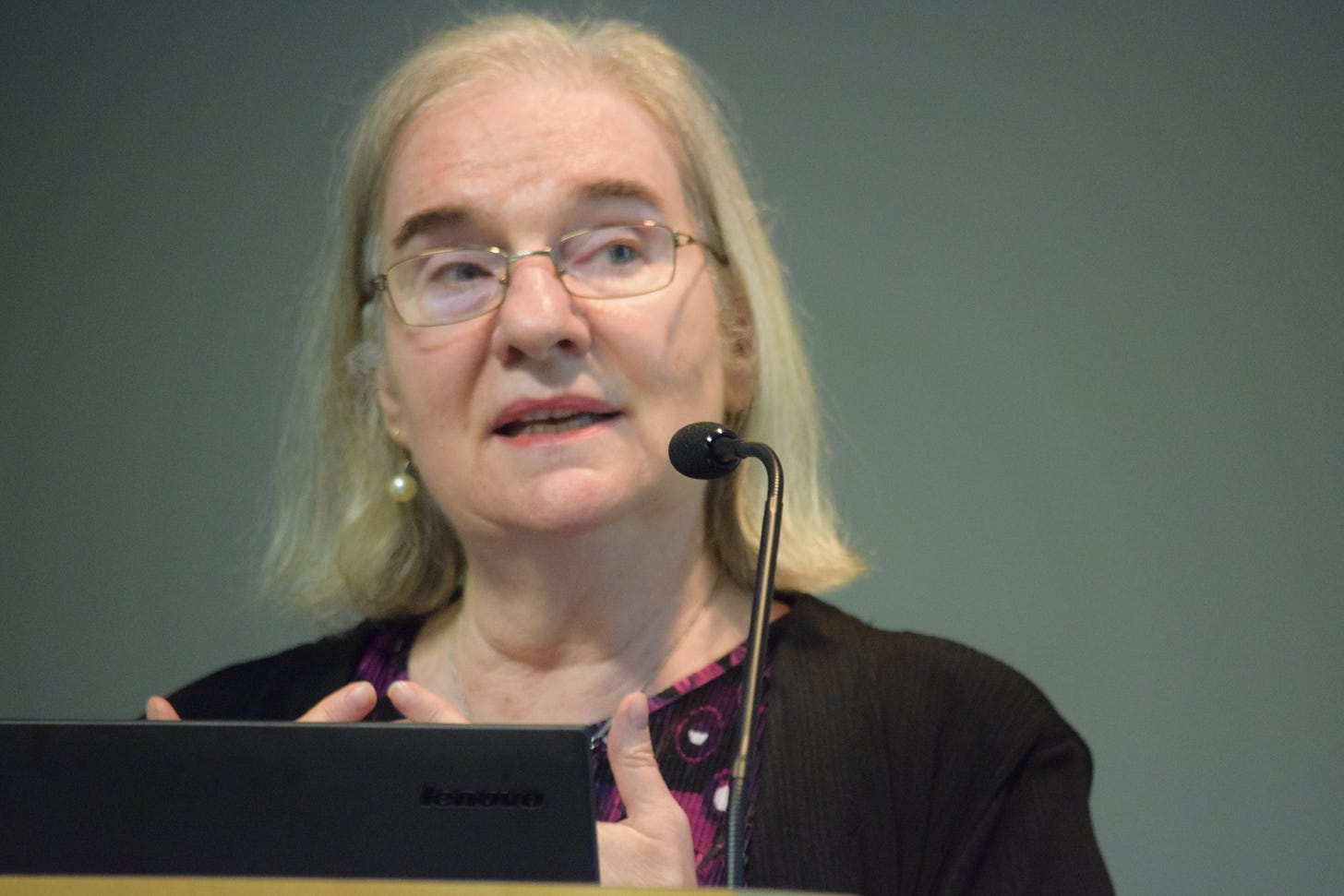On James Baldwin & Chava Rosenfarb
Two great writers—one in English and one in Yiddish—with similar obsessions
I’m excited to delve into the work of the great Yiddish writer Chava Rosenfarb, and to discuss her amazing story “Edgia’s Revenge” in this Sunday’s salon at 5 EST. I am re-posting a previous issue which explored James Baldwin and Chava Rosenfarb….in case you missed it the first time or need a refresh before Sunday! You may find yourself obsessively re-reading Rosenfarb—as I have, for the past year and a half.
***********************************************************************************************************
On Love and Destruction
I am currently reading James Baldwin’s masterful novel Another Country along with In the Land of the Postscript, an incredible book of Yiddish short stories by Chava Rosenfarb—and it is my delight to report that both writers have a lot to say about one particular and life-changing question: “do you love me?”
Interestingly, both writers are also fascinated by how we destroy each other.
My copies of both books. The Post-Its are my way of keeping track of passages to highlight in the review essay I am working on.
Let’s start with love. I used to teach Another Country every semester, but it’s been a while. One paragraph which stood out to me, then and now, comes very early in the book—on page 8 in the Vintage paperback. It’s a scene where the main character, Rufus, a musician, comes “doubly alive because the saxophone player, who had been way out all night, took off on a terrific solo. He was a kid of about the same age as Rufus, from some insane place like Jersey City or Syracuse, but somewhere along the line he had discovered that he could say it with a saxophone. He had a lot to say.”
James Baldwin in 1969. (Wikipedia)
This is the exact spot where you need your eyes as well as your ears. Each permutation of the question that’s about to come—do you love me?—is italicized in a different way, highlighting a different part of the question. And of course, it’s mimicking the music of the saxophone.
In Baldwin’s hands, Do you love me? Do you love me? Do you love me? — becomes (look closely)—Do you love me? Do you love me? Do you love me?
The italics get me every time.
I was obsessed with this novel while writing WOLF LAMB BOMB, and so Baldwin’s question—do you love me?—found its way into one of the Isaiah poems. I wrote about it for The Chicago Review of Books, and included some photos of the neighborhood where I happened to be while writing the poem “Night on Wellington Avenue” in Chicago along with a very short essay, called a micro-essay. https://chireviewofbooks.com/2021/06/08/night-on-wellington-avenue-chicago-an-excerpt-from-wolf-lamb-bomb/
But let’s go back to Yiddish masters of the short story. Rosenfarb is considered one of the most important Yiddish writers of the second half of the 20th century—so she was writing in the decades that Baldwin was. Imagine my amazement to discover that this collection of stories has that same question—“do you love me?”—on the last page, but this time, it’s spoken by deeply Jewish characters.
Chava Rosenfarb and her future husband in 1947.
The circumstances are also very different. In the story, “April 19th”, a Holocaust survivor named Hersh manages to find love again with another survivor named Bronia. “When Hersh first met her, her dark hair was still in the process of growing back after having been shaved off in the concentration camp. She had dark, burning eyes that occasionally glimmered with a tormented rage. She had lost her first husband, her parents and siblings at Auschwitz,” Rosenfarb, herself a survivor, writes.
But the story is rally about Hersh and his first wife, Rivkele. All of Rosenfarb’s stories are about the lives of survivors decades after the war—and how they cannot forget. At a Holocaust memorial ceremony, Hersh imagines that he sees Rivkele lighting a candle. Rivkele, of course, was one of the murdered.
Does his new wife Bronia know what he is imagining? Does she somehow feel it?
Rosenfarb ends the story with Hersh and Bronia in bed. I’m fascinated by the last sentence of the story—its present tense, its hint of the past, its continued obsession with the Shoah. And of course, that question that Baldwin so loved—do you love me?
The entire story was originally published in its English translation at JewishFiction.net. You can read “April 19th” by Chava Rosenfarb, translated by Goldie Morgentaler, here: https://www.jewishfiction.net/index.php/publisher/articleview/frmArticleID/17
Destroying Each Other
Let’s move from love to destruction, or more accurately, love that causes destruction, which apparently is a subject both of these very different writers thought about. Rereading Another Country, I was devastated by an exchange between Cass and Richard, a married couple. They are talking about the violent relationship one of their friends, Rufus, had with a woman named Leona.
Cass says “It can’t be justified.” Here is the entire exchange, complete with its astonishing last line.
I happened to reread this part of Another Country on the same day as I read “Edgia’s Revenge,” by Chava Rosenfarb. It is the story of a kapo in Auschwitz named Rella—in the camp she is known as Black Rella. In her years at the camp, she spares exactly one woman from death; that woman is named Edgia. Incredibly, Edgia survives the war, and years later, Rella recognizes Edgia as both are shopping for clothing in Montreal.
Rella, of course, had been hurt herself.
“In the camps I saw my entire family float heavenward with the smoke from the crematorium chimneys,” Rella remembers. “I wanted to save myself. I was nineteen years old. I wanted to survive. I didn’t choose the means by which to do it. There were no choices to be made.”
As the story unfolds, we learn all the terrible things Rella had to do to survive. But in the end, Edgia has the power to destroy Rella. After decades of an uneasy postwar friendship, it is Edgia who ends the friendship. “Edgia’s sentence seemed to pulverize me, to reduce me to dust,” Rella thinks. Here is the entire devastating passage:
The story is long and challenging, but unforgettable. I recommend it.
Salon this Sunday—Chava Rosenfarb
I might be a Rosenfarb super-fan—you can also read this essay of mine for more: Why This Is the Year to Celebrate Chava Rosenfarb. So I’m very excited to host Goldie Morgentaler and Kathryn Hellerstein this Sunday to delve into Rosenfarb’s great story “Edgia’s Revenge” and talk with us about how and why Rosenfarb is being celebrated in Poland today.
Chava Rosenfarb’s stories, translated by her daughter Goldie Morgentaler.
About Goldie Morgentaler
Goldie Morgentaler.
Goldie Morgentaler is Professor Emerita at the University of Lethbridge. Her translations of Chava Rosenfarb’s work into English have won several awards including, most recently, the 2019 Canadian Jewish Literary Award and the 2020 Segal Prize for the collection of Rosenfarb’s essays called Confessions of a Yiddish Writer. In October 2024, Morgentaler won the Canadian Jewish Literary Award for her translation of the stories in In the Land of the Postscript, including “Edgia’s Revenge”.
About Kathryn Hellerstein
Kathryn Hellerstein is Professor of Germanic Studies at the University of Pennsylvania, where she directs the Jewish Studies Program. A poet, translator, and scholar of Yiddish poetry, Hellerstein’s books include a translation and study of Moyshe-Leyb Halpern's poems, In New York: A Selection, (Jewish Publication Society, 1982), Paper Bridges: Selected Poems of Kadya Molodowsky (Wayne State University Press, 1999), and Jewish American Literature: A Norton Anthology, of which she is co-editor (W. W. Norton, 2001). Her monograph, A Question of Tradition: Women Poets in Yiddish, 1586-1987, won many awards including the National Jewish Book Award. She also contributed to American Yiddish Poetry: A Bilingual Anthology (University of California Press, 1986).
Works in progress include Women Yiddish Poets: An Anthology; China through Yiddish Eyes: Cultural Translation in the Twentieth Century; and Jewish Women Poets as Translators: Changing Liturgy and Canon. She has received grants from the National Endowment for the Arts, the National Endowment for the Humanities, and the Guggenheim Foundation, and many other institutions.
Salon this Sunday 3/16 at 5 EST.
Salons are a thank-you to paid subscribers who help make this newsletter possible. Monthly, annual, and gift subscriptions are available. If you sign up before Sunday’s Zoom salon, I will send you the Zoom link so you can join us and revel in Rosenfarb!
In the meantime, Here is a link to the PDF of Rosenfarb’s incredible story “Edgia’s Revenge” in English translation, graciously provided by Goldie Morgentaler. If you prefer, you can certainly buy the collection and read it that way—you will not be sorry to have Rosenfarb stories in your home!
"Edgia's Revenge" by Chava Rosenfarb, translated by Goldie Morgentaler
***********************************************************************************************************
Hope you enjoyed this newsletter! Thank you for your support of writing with depth.

